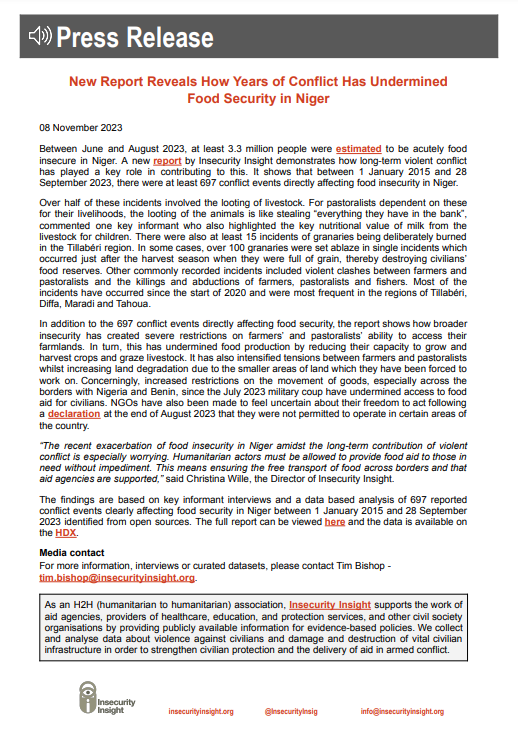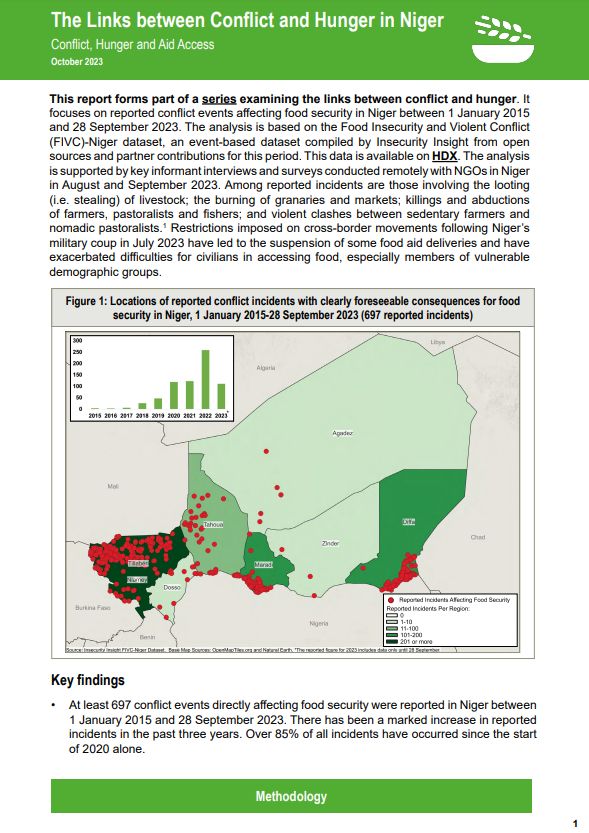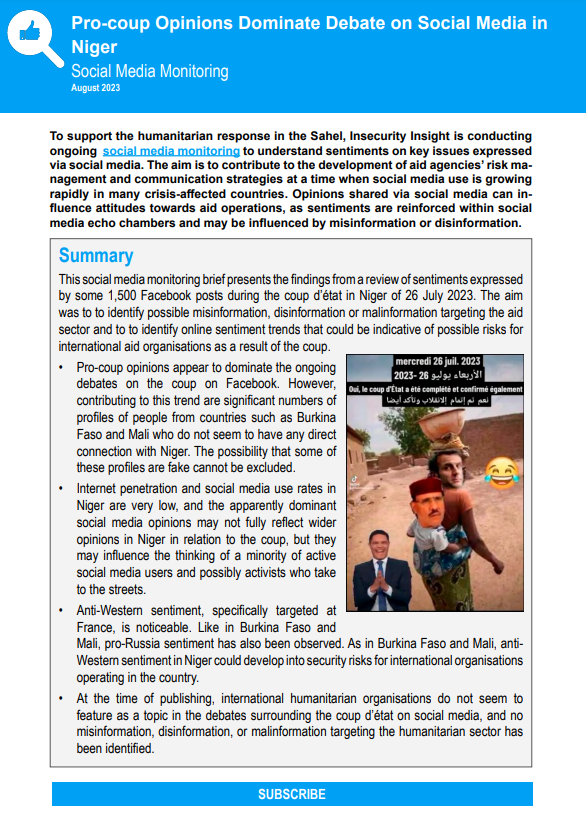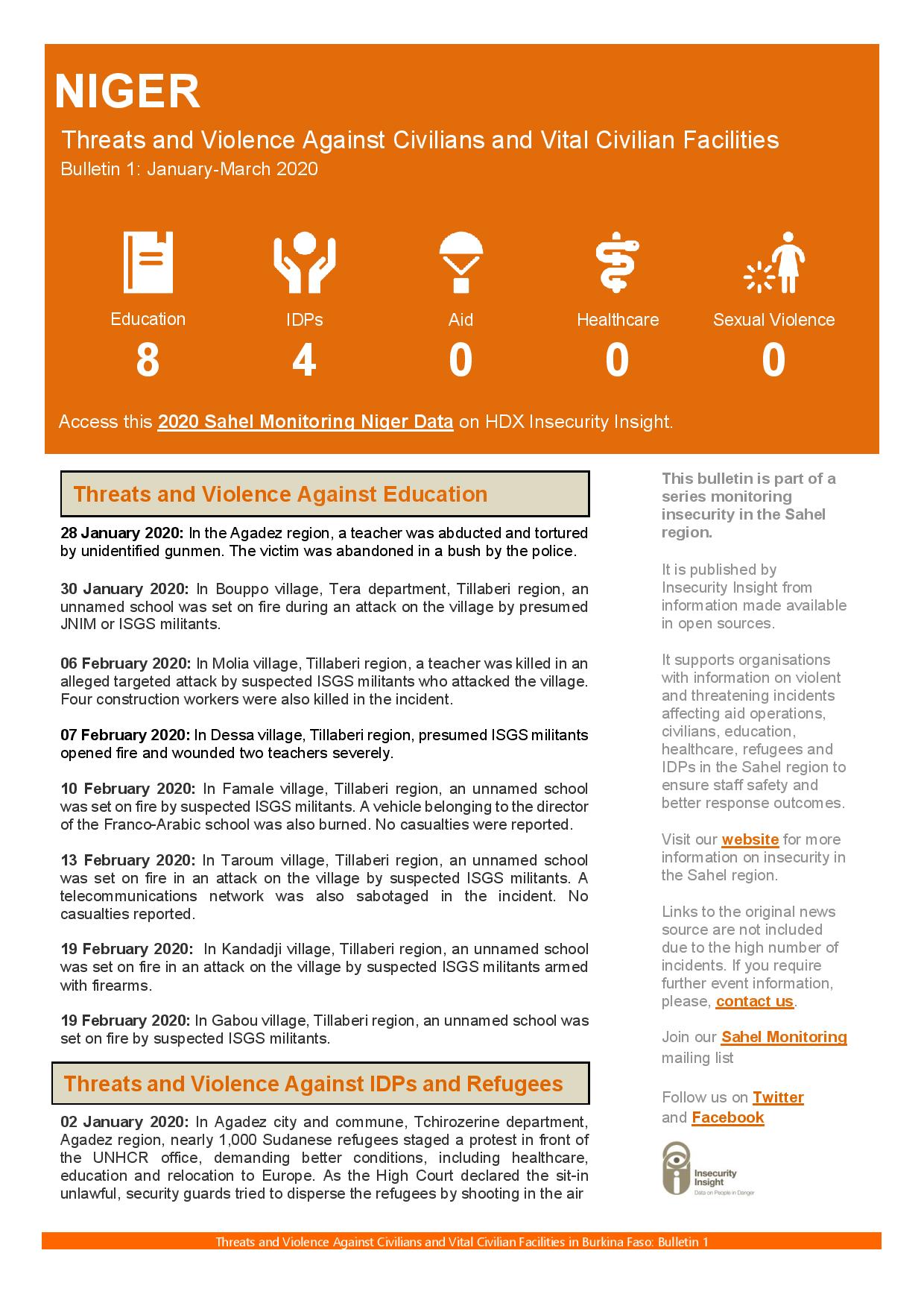- Home
- About us
- Press Releases
- Projects
- SIIM
- Security Incident Information Management (SIIM) (EN)
- Security Incident Information Management (SIIM) FR
- Security Incident Information Management (SIIM) (ES)
- Security Incident Information Management (SIIM) AR
- SIIM in NGO Security Collaboration
- Toolkit: Evidence that Protects Health Care
- Support for Advocacy
- Mobile Guides and Podcasts
- Mobile guides on security
- Research partnership
- Concept development
- Information
- Country Pages
Niger
Seriously affected by the Sahel security crisis in recent years, a coup d’état in July 2023 risks further exacerbating humanitarian needs and security risks for aid agencies in Niger.
Teacher kidnapped two months previously found executed in Tillaberi region
11 January 2024: Update: In Makalondi commune, Torodi town, Say department, Tillaberi region, a teacher kidnapped two months previously was found executed inside a school. Another was released by JNIM militants.* Sources: Zagazola I and Zagazola II. Return to Niger home page. more
Previous stories:
Reports

How Years of Conflict Has Undermined Food Security in Niger
08 November 2023
Press Release

Niger
October 2023
Conflict, Food and Access

Pro-coup Opinions Dominate on Social Media in Niger
August 2023
Social Media Monitoring

Niger
January-March 2020
Threats and Violence Against Civilians and Vital Civilian Facilities
Conflict and Hunger
Insecurity Insight monitors conflict events contributing to food insecurity in Niger as part of its conflict and hunger project. This report documents 697 incidents recorded between 1 January 2015-28 September 2023. Among reported incidents are those involving the looting (i.e. stealing) of livestock; the burning of granaries and markets; killings and abductions of farmers, pastoralists and fishers; and violent clashes between sedentary farmers and nomadic pastoralists. Restrictions imposed on cross-border movements following Niger’s military coup in July 2023 have led to the suspension of some food aid deliveries and have exacerbated difficulties for civilians in accessing food, especially members of vulnerable demographic groups. The data is available for download on HDX.
Social Media Monitoring
To support the humanitarian response in the Sahel, Insecurity Insight is conducting ongoing social media monitoring to understand sentiments on key issues expressed via social media. This document on Niger presents the findings of some 1,500 Facebook posts during the coup d’état in Niger of 26 July 2023. The aim was to identify possible misinformation, disinformation or malformation targeting the aid sector and online sentiment trends that could be indicative of possible risks for international aid organisations as a result of the coup. It found that pro-coup opinions tended to dominate debates about the coup on Facebook but that significant numbers of profiles of people from countries such as Burkina Faso and Mali without direct connections to Niger were contributing to this.